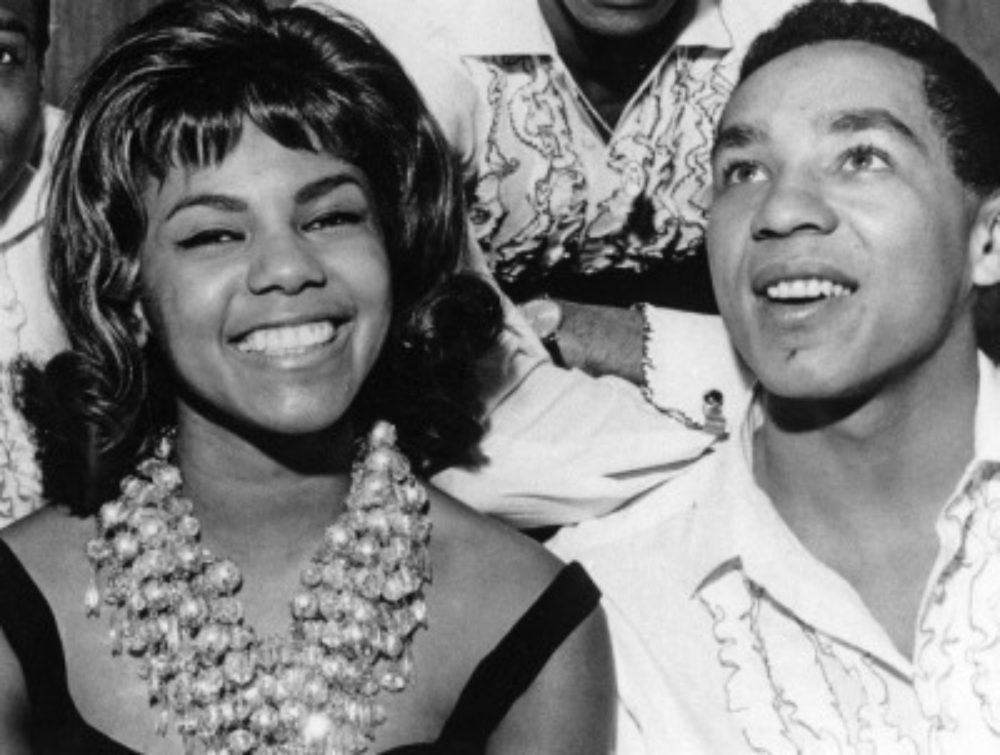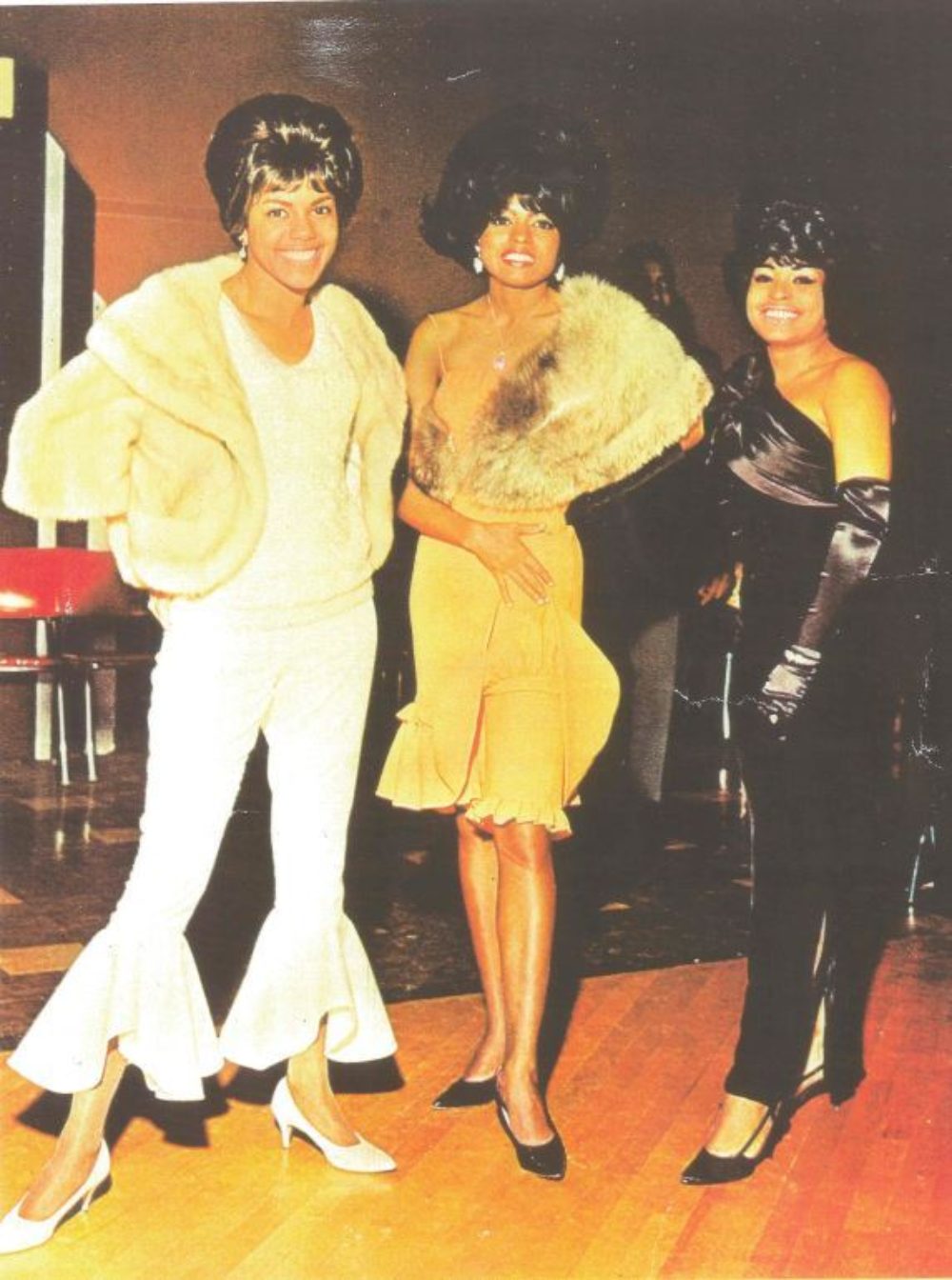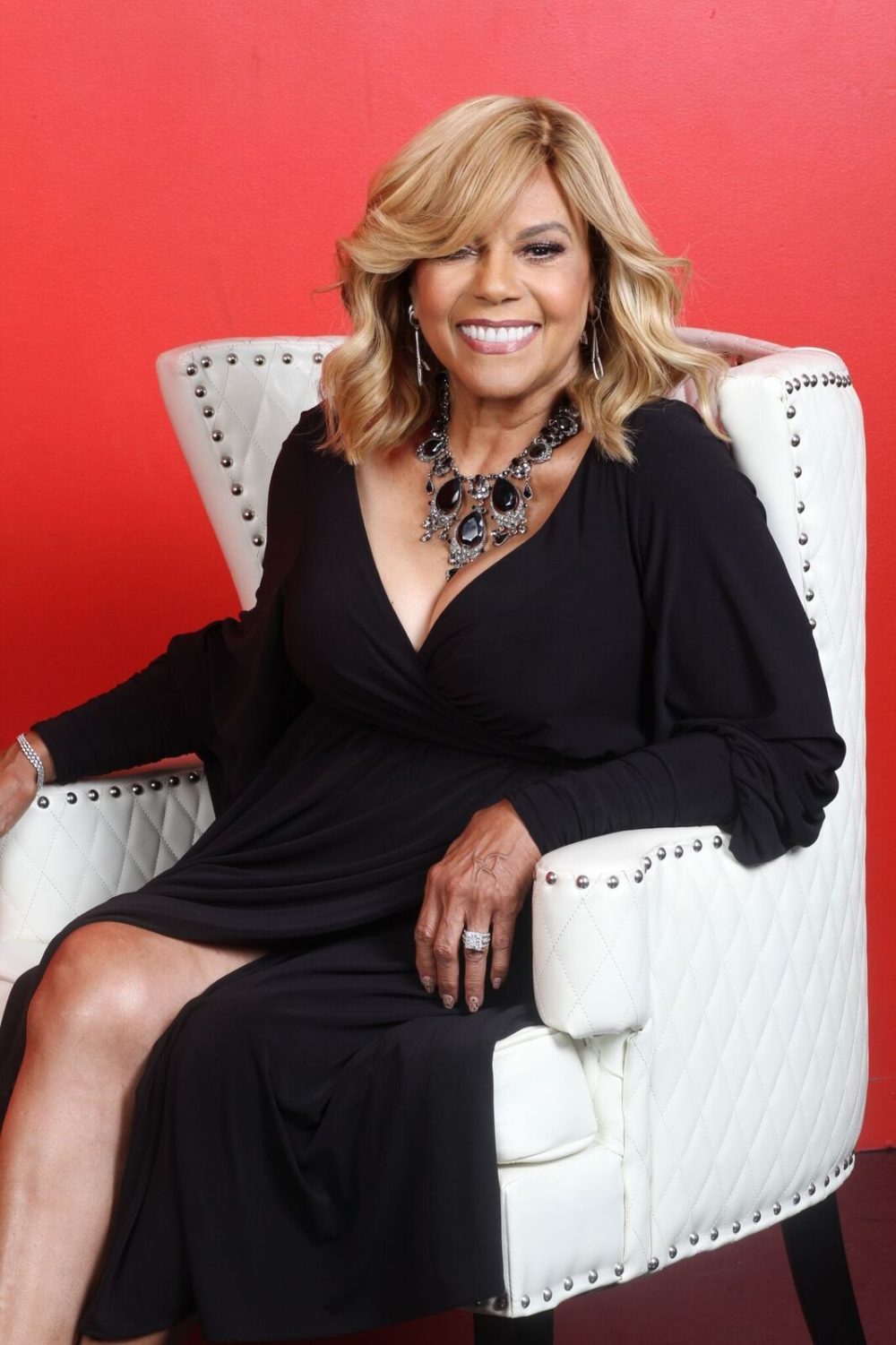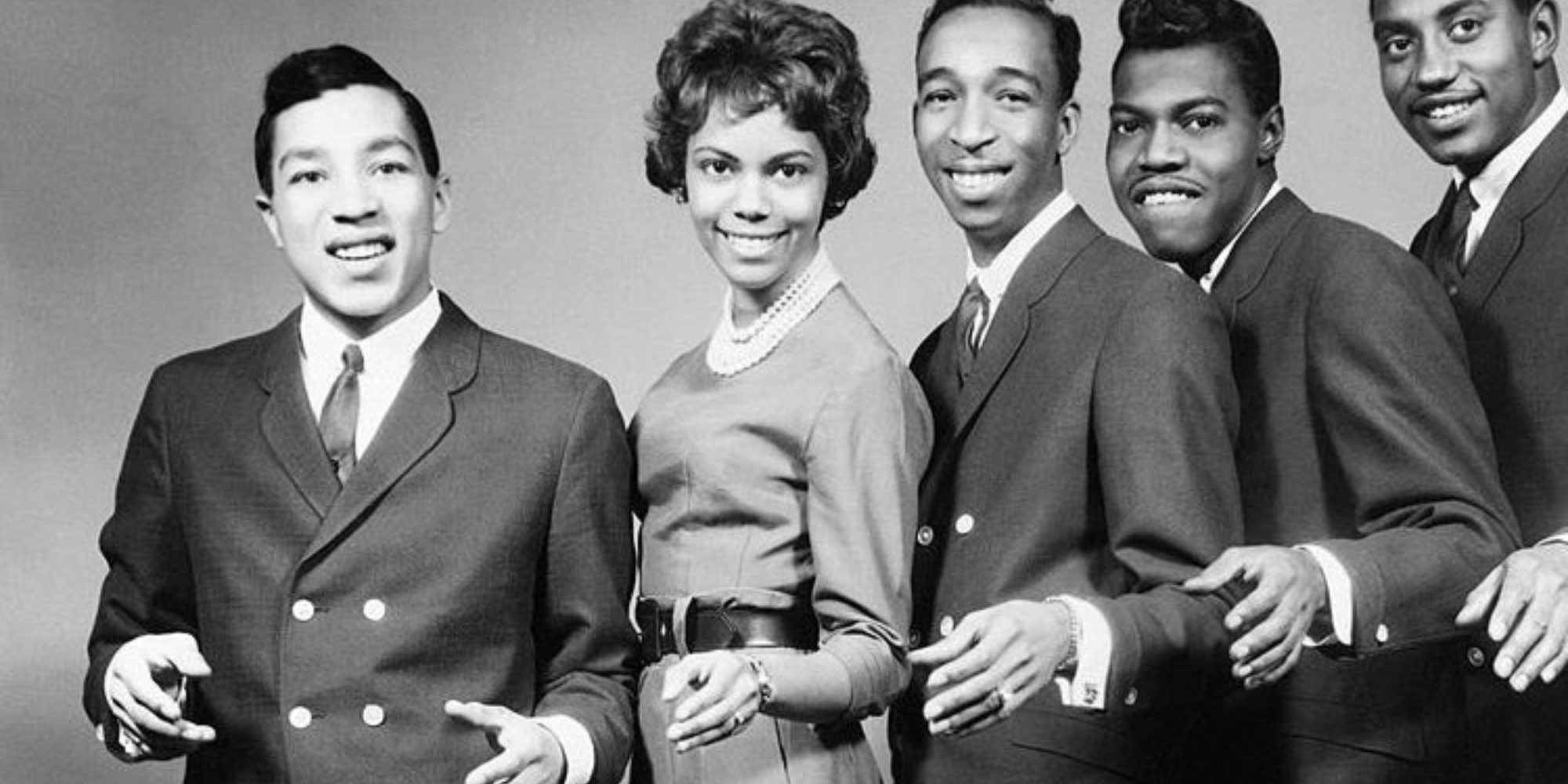You know Claudette Robinson. You've perhaps heard her on a classic Motown track, backing up her then-husband Smokey Robinson as a member of the Miracles. You've definitely heard the song “My Girl,” a song Smokey co-wrote with Claudette in mind.
These days Claudette Robinson lives in Beverly Hills, and is touring in support of her new children's book, Claudette’s Miraculous Motown Adventure which tells the story of how she became the “First Lady of Motown,” slightly adapted in a fantasy story for kids. It's fitting, since her life takes her such mythical places—Detroit at the birth of Motown, the Apollo Theater in the early '60s.
Robinson took some time to talk to Afropop's Ben Richmond over the phone about how the Miracles came to be, how they met Motown founder Berry Gordy and how she's maintains their legacy today.
The interview was edited for clarity and length, because Claudette Robinson is absolutely lovely and incredibly generous with her time and stories.
Ben Richmond: Congratulations on the book. I want to talk about it, though. Let's go back to maybe set the scene a little bit with your career. Is that O.K.?
Claudette Robinson: I'm here for you.

Were you already married to Smokey Robinson before you joined the Miracles?
No, the Miracles actually began with me, and I know that people aren't really aware of that. But the guys had a group called the Matadors. They were ìFive Timesî first, then they became the Matadors. And my brother, Emerson Rogers, was a part of that group. And whenever my brother had a group, like when he was in a group called the Orchids, I became the Orcherettes. And when he became the Matadors, we became a group called the Matadorettes, which was all girls, five girls.
We were just local talent, young teenagers. And at that time, it seemed everybody was singing; every household had a group or two. And my brother decided that they weren't really making any progress—weren't going to go professional—so he joined the army.
Maybe a month or so after that, there was a call out for looking for new talent, especially groups. And the guys used to rehearse in our basement all the time so I would hear all their songs and they had some original songs that Smokey had written. And with that, you know, I would hear their music. When they got ready to go for an audition, they were accustomed to having four-part harmony within the group so Smokey asked me if I would go with them to the audition. And I was a little hesitant at first because I didn't know if I would be able to. I thought maybe the harmony would be too low for me. Smokey at that time was singing in the sopranos section of his high school choir, with girls, because he had such an extraordinarily high tenor voice himself. But we rehearsed just a little bit before going to the audition.
When we got to the audition, we sang our songs and, you know, so we really had done pretty well. But the guys that were listening to the audition, they really felt like girls should not be in the background—that I should be the lead singer or Smokey and I should be a duet or something similar to that. Well, you know, I was not a part of their group, actually, I was filling in whatever part they wanted me to sing!
And I was not interested in singing lead because Smokey already was singing the lead and he did very well, so it was like, why change? It was already working.
Of course, the guy turned us down because he said that the world doesn't need another group that had a girl in the background— referring to the group the Platters, which was already well-established.
But, I'm going to say, fortunately, there was someone else that was listening who came over, approached Smokey and said, "Do you have any more of those songs?" because we were singing original songs. And Smokey said "yes." And he said, "how many?" And Smokey said, "a hundred." He had a spiral notebook full of what he considered songs. The person said, "I'd like to hear a few if that's O.K." So we all went over to the piano and Smokey was playing and singing and we were backing him up, and he listened patiently. After listening, the gentleman said, "my name is Berry Gordy."
There was no Motown at that time. This is 1957. But he said, "I'd like to work with you guys." So therefore, we had to have an outlet to have our record released. And Mr. Gordy chose the "End" record label which was out of New York City. They were known, at that time, for recording, like, Frankie Lymon and the Teenagers and they had big hits with them. We had a two-record deal with End when "Got A Job" was released.
"Got A Job" was released Feb, 19, 1958, which is Smokey and my cousin Bobby Rogers's birthdays. They were born on the same day, same year, in the same hospital and—they only found out later when they met each other—an hour apart. That was a real phenomena.
We heard it all over the airwaves and seemed like it was doing pretty well at that time— riding up the charts. Well, we thought, oh, wow, this is going to be great. Well, it was great on the airways, but it wasn't great when they sent our first royalty statement. The first royalty statement that we received was for $3 and 19 cents. And that was for everybody to share. They said they had to use the rest for "expenses."

After that, Smokey suggested to Mr. Gordy, "why don't you start your own record company?" Because we certainly couldn't do any worse.
Tamla Records began, which was at that time, the mother label for Motown and we released "Shop Around," which became Motown's first number-one seller.
We were kind of writing, getting shows, going to the Apollo Theater. We got there and we knew how to sing and we knew how to do harmony. But we weren't that great on choreography. We had our own choreography, which we thought was pretty good until we got to New York and saw all these groups who were really professional. And so our first time out at the Apollo, the owner wanted to send us back home. He called Mr. Gordy and said “These kids...they can sing, but they can't get on and off the stage!”
Of course, I'm going to say they gave us a break and the audience seemed to love us because we were young and they had a girl at the center. You know, I think that they gave us an opportunity to have a second chance.
And, of course, you know, as you're watching each and every show, you learn a little more and you just get an opportunity to see other acts and what they're doing and how they're doing that, you practice a little more, and then the better you become. And so we did that and we had many opportunities that we went back to the Apollo and all the other theaters. You did the theater circuit and it was the Uptown Theater in Philadelphia, it was the Royals Theater in Baltimore, and it was the Regal Theater in Chicago. And that was our first years, going mainly to play shows on the East Coast.
When you're touring the theater circuit, were you traveling by bus in between? How was life on the road?
Traveling on the road was really difficult. But because we were young, we didn't think so much of it being difficult, you know, because we had a lot of energy.
But we'd travel in a car. Initially there were six of us in a car—five members of the group and our guitarist, Marv Tarplin. And that's how we traveled everywhere for quite a while until "Shop Around" became a million seller and Mr. Gordy bought us a station wagon that had our name on it. And that's how we actually were able to retain our name, because, as you know, many artists don't own their own name.
I now retain the name "Miracles." And in terms of keeping the legacy going for the rest of the members, unfortunately three of our members, Bobby [Rogers], Ronnie [White] and Pete [Moore], are deceased and they so much wanted for the Miracles name to be remembered and also for our legacy to not be forgotten. So I am trying my best to continue that for them. I feel like I have a duty and responsibility because they worked so hard.
It seems like you're doing well! Did a documentary about you come out last year?
It's not out yet. Hopefully it will be out this year. It was so much material and, you know, you can't have five hours of a documentary. So I'm hoping that it'll come out the way, number one, the way I'd like it to, and two, that other people can truly enjoy it and get an opportunity to see some of the things that we, the Miracles, did at that time.
I'd watch all five hours; I find that such a fascinating era—all these great musicians and songwriters.
Was there ever a sense that you're feeling a little bit of competition with your peers at Motown? Because everyone's writing these great tunes and I'm sure you guys felt like you could have done a great version of "My Girl," but the Temptations were the ones whose version got out there?
Well, actually, the song was actually written for the Temptations, for David Ruffins' voice, because Smokey and Ronnie White, when they were writing this song, Ronnie was writing his lyrics for his wife and Smokey was writing the lyrics for his wife, which, of course, at that time was me. But they wanted like a kind of, you know, rough type voice, what he felt like would be soulful and sexy for the women. You know, the women could really enjoy hearing "My Girl" with the lower voice rather than a voice like he is, you know, like Smokey's. We actually did record "My Girl," but ours was never as great as the Temptations, you know, theirs is forever amazing, amazing. Whenever you hear those first four notes, you immediately know that that's "My Girl." It's a beautiful thing to think that that many years ago that people can still enjoy this song today.
But when you said, is there was there competition? Yes. There's always competition, but creative competition, not to the point where one was jealous of the other.

You also, of course, just wrote a book of your own.
Oh, yes, the book is out now. And actually what we're completing is the audio book, which I'll be reading the story. And then we also have a song, you know, with music that will go along with the book. I can't wait for people to hear it. And hopefully they'll like it as much as I do, because it's really cute.
My original idea, what I wanted to be was a teacher, a school teacher, and I would volunteer in my children's classrooms, my son, Barry, and my daughter, Tamla, from the time they were in kindergarten almost through high school. When my oldest granddaughter, Lyric, which's Tamla's daughter, started preschool, I started again doing things in classrooms for her, starting from preschool and for her, I went almost through high school. My greatest love really is children. I absolutely love children.
And I have had the most fun with this book release because I've been actually in classrooms and the teachers prepare the children for the history. I guess what they do is they, you know, Google me and then they discuss it and they make cards and posters. And they give you such love and hugs and ask questions. And sometimes they sing and dance for me. I am having the time of my life. I'm having a great time meeting a lot of amazing, wonderful people.
My personality is that I usually have a good time every day anyway because it's such a blessing just to still be alive, because unfortunately, you know, I've lost so many of my other sisters and brothers in song that are no longer with us. And, you know, it kind of makes you sad. But on the other hand, it's like I'm happy that I'm still here and I can carry on and tell other people about some of these other amazing artists, you know, that they didn't get an opportunity to meet.
Yeah, I think they're very lucky to have such a careful steward here of the legacy, spreading the word.
Well, I'm trying to do my best. You know, it's like a new career. And it's a wonderful time. It's a great time for me. I feel so grateful and so blessed that I can carry on, especially for Bobby, Ronnie and Pete, who are no longer with us, because I'm sure they would be extremely pleased, too, that their legacy is continuing.
Absolutely. And it sounds like on this latest tour you're traveling in a little bit more comfort than a station wagon.
A little bit. And thank the Lord for that!
Thank you so much and congratulations on the book and a great career!
Well, thank you so much. And I just want to tell you, I'm going to be at University of Southern California April 18th and 19th for the book fair. If anyone is in the California area at that time, I hope they come out and perhaps we'll get an opportunity to meet in person!
I will mention it. I'll send them your way. Thank you very much!








